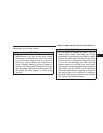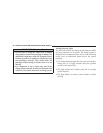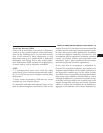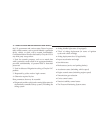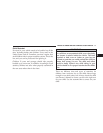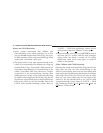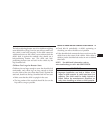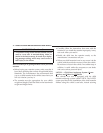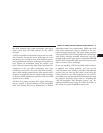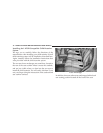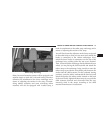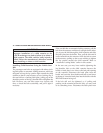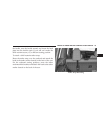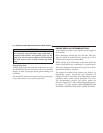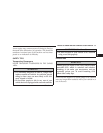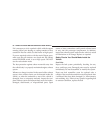
the child restraint using lower anchorages and upper
tether straps from the child restraint to the vehicle
structure.
LATCH-compatible child restraint systems are now avail-
able. However, because the lower anchorages are to be
introduced over a period of years, child restraint systems
having attachments for those anchorages will continue to
have features for installation using the vehicle’s seat
belts. Child restraints having tether straps and hooks for
connection to the top tether anchorages, have been
available for some time. For some older child restraints,
many child restraint manufacturers offer add-on tether
strap kits or retrofit kits. You are urged to take advantage
of all the available attachments provided with your child
restraint in any vehicle.
All three rear seating positions have lower anchorages
that are capable of accommodating LATCH-compatible
child seats having fixed lower attachments or flexible
webbing-mounted lower attachments. Child seats with
fixed lower attachments must be installed in the out-
board seating positions only. The center seating position
will accommodate LATCH-compatible lower anchorages
with flexible webbing mounted attachments only. Re-
gardless of the specific type of lower attachment. NEVER
install LATCH-compatible child seats such that two seats
share a common lower anchorage.
If you are installing LATCH-compatible child restraints
in adjacent rear seating positions, you can use the
LATCH anchors or the vehicle’s seat belt for the outboard
position, but you must use the vehicle’s seat belt at the
center position. If your child restraints are not LATCH-
compatible, you can only install the child restraints using
the vehicle’s seat belts. Please refer to “Installing the
LATCH-Compatible Child Restraint System” and “In-
stalling Child Restraints Using the Vehicle Seat Belt” in
this section for typical installation instructions.
THINGS TO KNOW BEFORE STARTING YOUR VEHICLE 75
2



